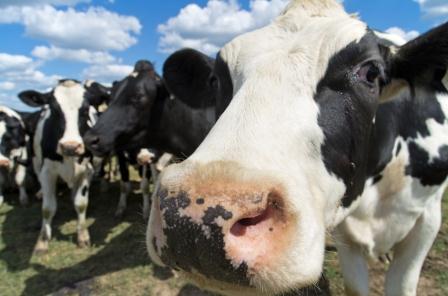Regulations 1829/2003/EC and 1830/200/EC [1] on GMOs have been published in the Official Journal on 18 October 2003 and entered into force on April 19th, 2004.
This legislation defines rules for the placing on the market and labelling of GMOs and food and feed products derived from GMOs. It also defines the rules for traceability of GMOs as well as of food and feed products derived from GMOs.
Biotechnology in general is interesting as it introduces new possibilities (reduction of pesticides, mycotoxins, water and soil pollution etc). However, it is clear that most of the European consumers do not accept GMOs for food use and that, as a consequence, the European starch industry will continue to require that food ingredients and additives to rely upon conventional [2] supply.
Therefore, the AAF will continue to respond to current customer demands for conventional products in compliance with EU law as long as consumers refuse GMOs for food use.
So far, the AAF succeeded to satisfy the demand of consumers for conventional ingredients for the food and drink industry.
Addendum I - Traceability
The AAF has always supported the European Commission’s initiative to put into place a compulsory system for traceability in general [3], and for GM raw materials in particular [4], with a clear definition of the responsibilities of each operator of the food and feed chain.
The traceability is a step by step approach where each operator of the food chain is responsible for the traceability of its supply and of its sales (“from whom to whom” traceability approach). As a result, each operator is individually responsible for the attainment of an adventitious presence as low as technically achievable.
The starch industry put into place, on a voluntary basis, Quality Management Systems such as ISO 9000, including internal operational traceability, well before 1999. All the procedures related to the procurement of conventional maize were further integrated in these systems to ensure that no GM maize enters the manufacturing of our products:
There must be adequate measures at all stages of the supply chain, including transport; these must be transparent and documented. For example: seed producers -> growers -> collectors (who generally also handle the drying) -> brokers and traders -> procurement departments of the starch producers -> maize starch plant.
AAF members have been able to comply with the requests of their customers for conventional ingredients and will continue to do so.
Addendum II - AAF Policy on GM Potato
The Addendum takes into consideration the fact that a new GM variety of starch potato has been approved for cultivation in the EU for the exclusive use in non-food and feed applications. AAF members are committed to provide non-GM potato starch products and ingredients when their customers so require.
The AAF fully trusts that the EFSA and the Commission will have adopted adequate safety measures to avoid any adventitious presence in crops of new GM varieties. It is confident as well that the Commission and Member States will make sure that such measures will be fully implemented.
Nonetheless, the AAF wants to confirm its policy on GMOs and in particular
1. Its determination to serve the demand of its customers;
2. Its firm support of traceability systems.
The AAF trusts indeed that all partners in the chain will take all necessary measures (safety measures, segregation systems, monitoring, etc…) to avoid any possible commingling.
Download the PDF position paper here
[1] Regulation (EC) n°1829/2003 of the European Parliament and of the Council of22 September 2003on genetically modified food and feed. Regulation (EC) n°1830/2003 of the European Parliament and of the Council of 22 September 2003 concerning the traceability and labelling of genetically modified organisms and the traceability of food and feed products produced from genetically modified organisms and amending Directive 2001/18/EC.
[2] By “conventional“ products, the AAF, in line with several European institutions who used this term at many occasions means the products to which the GMO traceability/labelling obligations do not apply. The AAF recommends that manufacturers do not use terms such as “traditional” or “GMO-free” as there is no clear definition of what this means, and it is likely to be very difficult to achieve - and substantiate - in any commercially complex food product. There is no EU legislation covering the use of the term “GM free” on food labels.
[3] The traceability of conventional maize products is not part of the GM legislation, but is legally required, as from January 2005, under Regulation 178/2002/EC of the European Parliament and of the Council of 28 January 2002 laying down the general principles and requirements of food law, establishing the European Food Safety Authority and laying down procedures in matter of food safety. Article 3.15 of this Regulation defines traceability as the “ability to trace and follow a food, feed, food producing animal or substance… through all stages of production, processing and distribution”.
[4] The traceability of GMOs and GM derived products is defined in the Regulation 1830/2003/EC of the European Parliament and of the Council of 22 September 2003 concerning the traceability and labelling of genetically modified organisms and the traceability of food and feed products produced from genetically modified organisms and amending Directive 2001/18/EC. Article 3.3 of this Regulation defines the traceability of GMOs as “the ability to trace GMOs and products produced from GMOs, at all stages of their placing on the market, through the production and distribution chains”.

